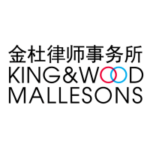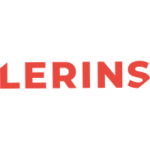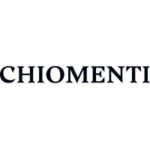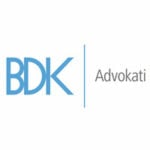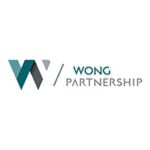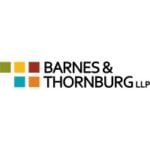-
Please briefly summarize your country's legislative framework for medicinal products (including biologicals), medical devices, food, and food supplements
In Korea, the Pharmaceutical Affairs Act (the “PAA”) regulates activities involving pharmaceuticals (including biologicals) such as manufacture, permit/license, sale, distribution, advertisement and post-sale matters, and defers to the subordinate laws (e.g., the Regulation on Safety of Pharmaceutical Products, Etc., the Decree on Facility Standards for Manufacturing Business and Importers of Drugs, and the Regulation on Manufacturing and Sales of Biological Products, etc.) for more detailed regulations thereon.
Medical devices including in vitro diagnostic (IVD) medical devices are regulated by the Medical Devices Act (the “MDA”) and the In Vitro Diagnostic Medical Devices Act – e.g., obtaining a business license for manufacture and import thereof and other regulatory permits for manufacturing and sales activities, provision of economic benefits with respect to medical devices (e.g., samples permitted), and labeling and advertising methods.
As for food and food supplements, the Food Sanitation Act (food in general), the Health Functional Foods Act (food supplements), the Special Act on Safety Management of Imported Food (imported food), and the Act on Labeling and Advertising of Food (labeling and advertising in general) govern relevant matters, such as business license, quality control, and labeling and advertising of food products.
Each of the above statutes delegates regulation of more specific matters to the respective Enforcement Decree (i.e., Presidential Decree) and the Enforcement Rules (which are promulgated by each competent government authority including the Ministry of Health and Welfare, the “MOHW”). Even more specific matters delegated by the Enforcement Decree and the Enforcement Rules are set forth in the relevant Public Notices and Directives (promulgated by each competent government authority including the Ministry of Food and Drug Safety, the “MFDS”). Further, although not legally binding, guidelines and case studies (e.g., Cases of Naming Products by the MFDS) are referred to as practical guidelines by regulatory agencies.
-
With regards to medicinal products and medical devices, how is the regulatory process structured in your jurisdiction from R&D through market approval until post-marketing vigilance, and what rules does it follow? Please briefly describe.
With respect to pharmaceuticals, the PAA and its Enforcement Decree provide the standards for clinical trials intended to develop pharmaceuticals and require compliance therewith. Anyone intending to manufacture/import pharmaceuticals, must obtain a business license for manufacturing/importing and also obtain approval or file a report for each drug from the MFDS. Such approval/report requires submission to the MFDS of relevant information/materials (although different by product type) including the development history, quality and safety, toxicity, pharmacological action, clinical test results, and status of use in foreign countries in accordance with the Regulation on Pharmaceuticals Approval, Notification, and Review. Pharmaceuticals are subject to reexamination by the MFDS within three months following the date falling four to six years from the date of prior product approval, based on the results of post-marketing surveillance (“PMS”).
The MDA provides for clinical trials, manufacturing/import business license, manufacturing/import permit, certification or report of each medical device, report on the sales or lease business, and PMS procedures, etc. with respect to medical devices. For example, anyone who intends to manufacture/import medical devices must prepare a protocol for clinical trials on medical devices and obtain approval thereof from the MFDS in order to conduct clinical trials. Also, they must have installed necessary facilities and manufacturing/quality control system and obtain a manufacturing license from the MFDS, and also apply for permit/certification or file a report for manufacture/import of each medical device by submitting materials (e.g., technical documents, clinical trial data) which list depends on the risk class of medical devices.
-
What is the regulatory process for food supplements, from first notification to the competent authorities until post-marketing vigilance in your country, and what regulations are applicable here? Please briefly describe.
Anyone intending to manufacture food supplements must install manufacturing facility and employ a quality control officer, obtain a business license for manufacturing food supplements from the MFDS, and file a report with the MFDS for each item to be manufactured.
Sale of food supplements requires registration of the import/sale business and also any overseas manufacturing facility (local due diligence can be conducted) with the MFDS, and then reporting on each item of imported food supplements, pursuant to the Special Act on Imported Food Safety Control (the “Imported Food Act”).
Food supplements must be manufactured using ingredients recognized by the MFDS as functional ingredients and must meet the standards and specifications of the Health Functional Food Code.
In addition, manufacturers and distributors of food supplements, drug store owners under the PAA, and importers and sellers of imported foods under the Imported Food Act must report to the MFDS on any adverse effect of food supplements (any undesirable or unintended sign, symptom or disease suspected to have been caused by food supplements).
-
What are the ongoing obligations in your country after a marketing authorization for medicinal products has been obtained or a conformity assessment been carried out for medical devices?
Manufacturers/importers of pharmaceuticals are subject to reexamination after a certain period (e.g., six years for a new drug), must submit documents required for renewal of pharmaceutical approval or report before the expiry date, must perform the risk management plan submitted at the time of obtaining the existing pharmaceutical approval and report side effects and other safety related information. For reference, if the use of the pharmaceuticals results in, or is likely to result in, harm to the public health, there may arise an obligation to recall or dispose of such products on the market.
Manufacturers/importers of medical devices must designate a quality control manager to guide and supervise employees engaged in manufacture and import of medical devices, and to oversee manufacture/import, quality, and safety matters.
Manufacturers/importers of newly developed medical devices or orphan medical devices must, if requested by the MFDS, conduct a PMS on the safety and effectiveness thereof.
-
Which are the competent national authorities having the regulatory oversight over medicinal products, medical devices, food, and food supplements and what are their respective responsibilities?
The MFDS has the regulatory oversight over pharmaceuticals, including the manufacture, import and sale thereof, and other relevant issues such as clinical trials, permits, advertisements, and post-sale safety matters, while the MOHW oversees distribution of pharmaceuticals, including establishment of sales order, reports on supply details, and listing with the health insurance and pricing of pharmaceuticals.
To elaborate, the MFDS regulates obtaining a business license for manufacturing/import business, other permits required for engaging in the manufacture/import, sale, lease and repair business, the PMS, and advertisements of medical devices. The MOHW regulates matters relating to medical devices, such as rebates and reporting on provision of economic benefits, and the MFDS and the Korea Fair Trade Commission (the “KFTC”) are responsible for regulating labeling and advertisement of medical devices.
Overall regulation of foods and food supplements is administered by the MFDS which directly regulates manufacture and import and oversees sale through the competent local government by delegation. Customs clearance is regulated by the Korea Customs Service but to the extent of perfunctory review of whether the submitted customs documents, as prescribed by the MFDS, are in order. The MFDS monitors overall quality, labeling, and advertisement of food and food supplements and administratively sanctions violations thereof. The KFTC may intervene in unfair competition activities, including unfair labeling and advertisement.
-
Please briefly describe the procedure of challenging regulatory decisions (e.g., denial of marketing authorization) made by the competent regulatory authority in relation to medicinal products, medical devices, and food supplements.
Where the MFDS imposes administrative sanctions such as suspension of sale, corrective order, imposition of fine, or revocation of permit with respect to pharmaceuticals, medical devices, foods and food supplements, the sanctioned person may (i) file an objection (in response to an Advance Notice) in accordance with the Administrative Procedure Act before such administrative sanction is imposed, and (ii) after the administrative sanction is rendered, file an administrative appeal with the court or the Administrative Appeals Committee to argue revocation or invalidation of the administrative sanction.
The MFDS and the competent local government may order revocation of permit, certification, approval or report, office closure, prohibition of manufacture, import or sale of a product class or product, or suspension of all or part of the business for up to one year. Moreover, they have the authority to order suspension of use, impose fines and/or issue corrective orders and public announcement of violation.
To elaborate, prior to the official imposition of the administrative sanction, the sanctioned person may submit an opinion upon receipt of the Advance Notice on the administrative sanction to be imposed. After the administrative sanction is rendered, the sanctioned person may claim revocation or invalidation of the administrative sanction by filing an administrative appeal with the Administrative Appeals Commission or an administrative claim with the court.
-
Please briefly describe the legal framework and the relevant regulatory procedure (e.g., application process, requirements, approval, denial) that applies in your jurisdiction to clinical trials for medicinal products and medical devices.
Clinical trials for pharmaceuticals are regulated by the PAA and the Regulation on Safety of Pharmaceutical Products, Etc. In order to conduct clinical trials, pharmaceutical companies must submit a clinical trial protocol to the MFDS for approval and conduct clinical trials at a designated clinical trial institution. Further, clinical trials must be conducted in compliance with the Regulation on Safety of Pharmaceutical Products, Etc. Such standards govern (i) the implementation of clinical standards (e.g., selection of the principal investigator (PI) overseeing the clinical trial, establishment of safety measures, implementation of clinical trials within two years after approval of the protocol) and (ii) the management of clinical trials (e.g., establishment of the institutional review board (“IRB”), obtaining consent from the subjects).
Anyone intending to conduct a medical device clinical trial pursuant to the MDA must submit to the MFDS a clinical trial protocol, the GMP data for the medical device, technical documentation data, etc. as stipulated in Article 20 of the Enforcement Rules of the MDA, and obtain approval thereof from the MFDS. After the IRB approval of the institution conducting the clinical trial, the following reports must be submitted: (i) a report on abnormal reactions, (ii) a status report on the clinical trial by the last date of February every year, and (iii) the completion report after completion of the clinical trial, together with a report on the clinical trial results.
-
Is there a public database for clinical trials in your country, and what are the rules for publication?
Information related to the MFDS approval of clinical trials (e.g., date of approval, name of the product, title of the clinical trial, name of the implementing institution) is disclosed on the websites operated by the MFDS:
In accordance with the comprehensive disclosure system of important pharmaceutical and bio information (the “Comprehensive Disclosure System”), and for the protection of investors in listed companies, information on the status of clinical trials (e.g., submission of the investigational new drug (IND) application, and change, suspension or termination of important contents thereof, clinical trial results, general information on the clinical trials including the disease(s) which the clinical trials are intended to ultimately help treat or prevent, implementation method, expected effects) is disclosed on the websites of the Financial Supervisory Service and the Korea Exchange
-
Please briefly summarize the rules that must be observed in your jurisdiction when using data from clinical trials?
There is no particular restriction on utilization of clinical trial data that are disclosed by the MFDS with respect to the clinical trial approval and those disclosed per the Comprehensive Disclosure System, but the disclosure is limited unlike other jurisdictions and thus the use of the clinical trial data is also limited (i.e., only to the extent of disclosed data).
-
Are there any trends and/or legislative proposals in your country on digitizing the process of conducting clinical trials (e.g., digitalization of the application process, decentralization of clinical trials)?
After COVID-19, digitalization of clinical trials, i.e., decentralized clinical trials (“DCTs”) became an issue of heated discussions. It has been pointed out that there is some practical limitation to implementing DCTs due to the current laws prohibiting remote medical treatment and delivery of medicine. However, recently, the Korean government has begun improving the clinical trial system by preparing measures to build and support DCTs and pursuing projects developing core technology and guidelines for the activation of DCTs.
In order to prepare for implementation of DCTs, the MFDS amended the Guidelines on Electronic Consent to Clinical Trials to strengthen protection of rights and benefits of subjects who are not familiar with digital technology for when obtaining their consent to participation in clinical trials by electronic means.
In addition, a public-private expert council is operated from January 2024 to further develop and improve the system for obtaining “electronic consent to clinical trials” that is necessary for implementing DCTs.
With respect to software medical devices, clinical studies on human subjects may be replaced by data-based studies. For example, for clinical trial data, retrospective studies that apply past diagnostic data and real world evidence (RWE) generated from use of medical devices may be submitted when applying for the product approval.
-
What are your country's legal requirements for the authorization of manufacturing plants for medicinal products, medical devices, food, and food supplements? Please briefly describe.
In order to manufacture pharmaceuticals or medical devices, the manufacturer must obtain approval from the MFDS after installing manufacturing and quality control facilities and devices, quality control test room, and storage room for raw materials and other materials, etc. in accordance with the facilities standards applicable to manufacturers/importers of pharmaceuticals, etc. and as applicable, the Enforcement Rules of the MDA. In addition, the manufacturer must carry out manufacturing activities in accordance with the GMP by e.g., employing and training a manufacturing manager or a quality control officer.
The manufacturing facilities for food supplements must be kept away from any pollutant generating facilities, and each component facility must be managed in a sanitary manner. The manufacturing facilities must have an independent workplace (so that no other products are also produced at the same place), warehouse, storage facility (which can be used jointly with other pharmaceuticals, etc.), and quality control room (which may be omitted if outsourced), etc.
Similar facility requirements apply to overseas manufacturing facilities for food supplements that are imported, and on-site due diligence is performed to ensure compliance with the Imported Food Act.
Manufacturers of food supplements can obtain GMP certification from the MFDS after setting up SOPs for quality control purposes, in addition to the above facility requirements. The GMP mark may only be attached to food supplements only if the manufacturer has obtained the GMP certification from the MFDS.
-
Please briefly describe the typical process of distributing medicinal products, medical devices, and food supplements in your country, encompassing, if applicable, the wholesale distribution of products.
Generally, pharmaceuticals manufactured or imported by pharmaceutical companies are supplied to drug wholesalers, which in turn sell the pharmaceuticals to hospitals and pharmacies (approximately 90%), but in some cases, pharmaceutical companies directly supply pharmaceuticals to hospitals and pharmacies (approximately 10%). On the other hand, only hospitals and pharmacies may sell pharmaceuticals to end consumers with no more than twenty over-the-counter drugs (e.g., fever reducers, digestives) which may be sold by 24/7 convenience stores from 2013.
Medical devices are generally sold to medical institutions or consumers (i) directly by the manufacturer/importer or (ii) by sellers/lessors, persons establishing medical institutions or persons engaged by said persons to sell or lease the medical devices.
Engaging in the business of manufacturing food supplements requires a business license from the MFDS, and the import/sale of imported food requires business registration with the MFDS. However, sales only requires notification to the local government, which is relatively simple. Therefore, food supplements are distributed through the general online and offline FMCG distribution channels, as well as via pharmacies.
-
Please briefly describe the pricing and reimbursement rules, if any, for medicinal products, medical devices, and food supplements in your jurisdiction?
- The Korean Health Insurance System adopts a method in which the National Health Insurance Service (the “NHIS”) reimburses medical providers (medical institutions, pharmacies) that provide medical services to health insurance subscribers (citizens).
- The drugs and medical supplies approved by the MFDS for sale are selectively registered with the Positive List System, if they have excellent therapeutic value (medical validity) and economic value (cost efficiency and possibility of replacement), in accordance with the National Health Insurance Act and are priced as determined at the time of the registration.
- Pharmaceuticals and medical supplies that are covered by health insurance mean that patients may use them with prescription at the applicable health insurance price. In practice, such pharmaceuticals and ingredients are supplied to wholesalers, medical institutions, etc. at the price set at the time of registration plus distribution margin.
- The reimbursement procedures for medical devices differ depending on whether the medical device becomes part of medical practice as medical equipment or is a therapeutic ingredient.
Medical equipment used as part of medical practice must be reimbursed as part of medical practice in accordance with the Public Notice on the List of Reimbursable Treatments and Non-reimbursable Treatments and Reimbursement Relative Value Scale. The application for reimbursement with respect to medical treatment is only available to medical-care institutions or medicine-related organizations.
Medical supplies mean medical devices that are consumable products other than medical equipment. The manufacturer/importer may apply for a decision on whether the medical supplies are eligible for reimbursement. For new medical technology, the relevant evaluation results should be examined, and if the distinction is unclear, it should be confirmed whether the relevant acts are eligible for reimbursement.
If the relevant acts (existing technology) clearly exist, the MOHW must evaluate, via the specialized evaluation committee of medical supplies, the economic feasibility and the adequacy of benefits and determine whether such acts are eligible for reimbursement. If the medical treatment or medical supply is found eligible for reimbursement, the upper limit of reimbursement must be calculated by checking whether products with identical purpose are registered and comparing with the cost, effect, function, etc. of the registered products.
- There have been no cases where national health insurance reimbursement was provided to food or food supplements.
- The Korean Health Insurance System adopts a method in which the National Health Insurance Service (the “NHIS”) reimburses medical providers (medical institutions, pharmacies) that provide medical services to health insurance subscribers (citizens).
-
What legislative framework applies to the advertising for medicinal products, medical devices, and food supplements in your country?
The PAA prohibits false or exaggerated advertisements about the name, manufacturing method, efficacy or performance of pharmaceuticals, advertisements where doctors guarantee/recommend the performance, efficacy or effect of pharmaceuticals, advertisements slandering other products, and those using consumer experiences or promoting prescription drugs, but permits limited advertisement of preventive drugs or advertisements targeting medical/pharmaceutical experts. Advertisements of pharmaceuticals in such media as newspapers, magazines, broadcasting, radio, the Internet, online newspapers, etc. that are set forth in the PAA are required to pass review by the MFDS (or a review body delegated by the MFDS for review of advertisements, i.e., the Drug Advertisement Review Committee of the Korea Pharmaceutical and Bio-Pharma Association).
As for medical devices, the MDA similarly prohibits false or exaggerated advertisements, advertisements with doctors guaranteeing/recommending the performance, efficacy and effect of medical devices, and those using consumer experiences. Advertisements via such media as provided by the MDA are required to be reviewed by an institution or organization reported to the MFDS (i.e., the Medical Device Advertisement Review Committee of the Korea Medical Devices Industry Association and the Autonomous Advertisement Review of the Korea Medical Devices Association).
Labeling and advertisement of food and food supplements are regulated by the MFDS in accordance with the Act on Labeling and Advertising of Food. Food and food supplements must be labeled with statutory indications (e.g., the manufacturing date), and false or exaggerated advertisements (e.g., advertisements that are likely to describe the food or food supplements as having efficacy in the prevention and treatment of diseases) are prohibited. Unfair advertising activities such as slandering competing products are also restricted. In general, food advertisements do not need to undergo a preliminary review process, but advertisements of food supplements are required to pass Autonomous Advertisement Review of the Korea Advertising Review Board in advance.
-
What laws apply to patents and trademarks for medicinal products, medical devices, and food supplements in your country?
The Patent Act and the Trademark Act govern patents and trademarks of pharmaceuticals, medical devices, and food supplements.
In order to obtain a patent, the subject product must be available for industrial use (industrial availability), must not be already known before filing the patent application (novelty), must not be easily conceived from prior technology (advancement). For trademarks, they must be distinctive and should not infringe benefits to the public or to other persons.
-
Please briefly describe how patent infringements in relation to medicinal products and medical devices are addressed in your jurisdiction, including possible defense strategies and legal proceedings against patent infringements.
There are three possible options to defend against patent infringement: (i) file legal proceedings (e.g., claim invalidation, request confirmation of scope of negative rights, claim confirmation of absence of infringement claim), (ii) present a defense in litigation by arguing (a) exclusion of publicly known technology, (b) abuse of rights (exercise of rights based on invalid patent rights), (c) statute of limitations (three or ten years), and (d) free technology, or (iii) settle the case and avoid litigation.
Patent infringement lawsuits for drug or medical device are generally initiated by the patent holder claiming infringement and filing a lawsuit if they determine that their patent rights have been infringed. In litigation, the court examines the validity and infringement of a patent, reviews the relevant evidence submitted and hears arguments from both sides. The court decision would determine whether there has been patent infringement, and the parties would subsequently take legal measures in accordance therewith (e.g., seeking compensation for damages, prohibition of further infringement).
-
Does your jurisdiction provide for restrictions on the use of trademarks for medicinal products, medical devices, food, and food supplements?
Trademarks registered with the KIPO are protected by the Trademark Act, and unregistered trademarks, trade names, and other business marks are protected by the Unfair Competition Prevention Act. Therefore, if trademark rights are infringed, legal remedies can be sought through provisional injunction against infringement in a civil proceeding.
For pharmaceuticals, medical devices, foods, and food supplements under the jurisdiction of MFDS, the use of trademarks may be indirectly restricted to prevent consumer misperception (e.g., pharmaceutical trademarks on food may lead to misunderstanding of food as pharmaceuticals), but the restriction on direct use of trademarks is limited from the perspective of IP rights protection or prevention of unfair competition.
Exceptionally, for pharmaceuticals, a brand name that has a letter or number added to or replacing that in the name of a product that has already been approved may be used if the relevant product has similar efficacy and effect as the approved product. Further, if a foreign trademark is used in the application stage for product approval without attaching any supporting documents of the trademark holder, the application may be denied.
-
Please briefly describe the product liability regime for medicinal products, medical devices, and food supplements in your country.
Pharmaceutical companies are obligated to report side effects of pharmaceuticals, and such drugs may be subject to recall. If a side effect occurs, the MFDS may remedy the victim and the cost of such remediation would be paid from the charges collected from the pharmaceutical companies.
If clinical trials are conducted for the development of pharmaceuticals, insurance must be obtained to indemnify or compensate the subjects for any damage to their health. In compensating the subjects, the procedures explained to the subjects in advance must be complied with.
Under the MDA, manufacturers/importers of medical devices that are inserted into the human body and maintained continuously for at least 30 days must purchase insurance or mutual aid to compensate for damage to affected patients.
If there is a material defect in quality control or performance of a medical device manufactured/imported after obtaining a permit or certification or filing a report, or if it has caused or is likely to cause harm to public health, or if it has no efficacy, the MFDS may revoke the permission, certification or notification.
The Food Sanitation Act or the Health Functional Foods Act do not separately stipulate the liability of a business operator to compensate consumers, and thus the business operator is held responsible for such liability in accordance with the general consumer dispute resolution process. In the pre-litigation stage, unless the parties express their intention regarding how to resolve the dispute, the consumer dispute resolution standards announced by the KFTC would be the basis for settlement or recommendation. If the parties fail to settle, the dispute would proceed as civil litigation for damages, and the causal relationship between the business operator’s intention or negligence and the damage would be an element in establishing liability.
The Product Liability Act recognizes the liability for damages to the life, body, or property of a consumer caused by a product defect (defect in the manufacture, design or labeling), regardless of whether the manufacturer (including the actual manufacturer and the person who uses the name, trademark, etc. to be misunderstood as the manufacturer) is at fault or not. If the manufacturer is aware of the defect but fails to take necessary measures and causes serious damage to life or body, the manufacturer would be liable for punitive damages up to three (3) times the amount of such damage.
-
Please provide a short overview of risks of liability (criminal liability, serious administrative / civil liability) and enforcement practice with regards to medicinal products (including biologicals), medical devices, foods, and food supplements.
- Under the PAA/MDA, pharmaceutical/medical device companies must (i) comply with the manufacturing and quality control standards when manufacturing and importing pharmaceuticals/medical devices, and perform post-marketing safety management even after product approval is obtained. Violation may result in criminal liability (imprisonment or fine) for the individual offender, and the employer of the offender may be fined. Further, the MFDS may ban the manufacture/import of the relevant product or suspend all or part of business up to one year. (ii) Pharmaceutical companies are prohibited from illegally providing economic benefits to medical practitioners, medical institutions and pharmacies. Violation may result in criminal liability to the individual actor, and the employer fined. Further, the MFDS may suspend sale of the relevant product. (iii) If a person fails to register a manufacturing/import business or obtain a manufacture/import license, certification or report, or does so by fraud or other improper means, he/she may be imprisoned or fined, and the employer
- For violation relating to food products, potential penalties are as follows. Also, the MFDS or the authorized local government may render an administrative decision such as revocation of business license, registration and report, suspension of business, or recall and disposal of products.
No. Violation Potential Penalty (max) Imprisonment Fine 1 – manufacture food supplements without a food supplements manufacturing license, or – sell food supplements containing harmful or pharmaceutical ingredients
10 years KRW 100 million 2 violate the quality control standards related to food supplements (e.g., facility standards, GMP standards) 3 years KRW 30 million 3 – fail to register the business of importing and selling imported food, – fail to file an import declaration for imported food, or
– file a false import declaration for imported food
5 years KRW 50 million 4 violate the quality control standards related to the import and sales business 3 years KRW 30 million 5 unfair labeling or advertising (e.g., false, exaggerated, deceiving consumers, slandering other companies) 5 years KRW 50 million -
Does your jurisdiction provide for a specific legislative and regulatory framework for digital health applications (e.g., medical apps)? If yes, please briefly describe the relevant framework.
Digital health applications are classified into “software medical devices” (to which the MDA applies) and “wellness applications” (to which the MDA does not apply) based on their intended use. As the distinction between the two is ambiguous, the MFDS has opened a public service center to help determine whether a digital health application is a medical device or not.
If a digital health application is a software medical device, it can be created and sold only after obtaining product approval from the MFDS in accordance with the MDA.
The NHIS has recently acknowledged reimbursement for a software medical device analyzing medical images and a digital therapeutic for insomnia.
Digital health applications must be operated in compliance with personal information protection laws (e.g., restrictions on transfer of electronic medical records under the MDA and restrictions on overseas transfer under the Personal Information Protection Act, the “PIPA”), and the data flow and consent structure to ensure compliance must be consistent with the PIPA and the guidelines of the Personal Information Protection Commission (the “PIPC”).
-
Does your jurisdiction provide for laws or certain legal measures to ensure the supply of medicinal products and medical devices, or are such rules envisaged in the future? If yes, please briefly describe those rules.
A bill to amend the PAA is pending at the National Assembly. It is primarily intended to designate drugs with unstable supply and demand, order production of such drugs making available compensation for losses from such production, and newly establish a committee to systematically address the unstable supply and demand.
-
Are there any specific compliance standards in your jurisdiction for the marketing of medicinal products and medical devices (e.g., codes of conducts of industry associations, etc.)? If yes, please give a brief overview of the relevant standards.
In order to prevent unfair customer solicitation pursuant to the Monopoly Regulation and Fair Trade Act, pharmaceutical companies and medical device companies are invited to form a business association and establish fair competition rules, thereby maintaining fair competition.
Such fair competition rules prohibit pharmaceutical/medical device companies providing economic benefits to medical practitioners, etc., while permitting certain acts, e.g., (i) donation, (ii) support for hosting, operating and participating in academic conferences, (iii) product presentations, (iv) provision of clinical trial drugs, (v) market research and PMS, and (vi) exhibitions, advertisements, lectures and advisory services.
-
Please state 3-5 key decisions by courts or regulatory authorities that have been issued recently and that are relevant for the life sciences sector.
- Enforcement of the Digital Medical Products Act: For recent legislative efforts, the Digital Medical Products Act – which is applicable also to digital medical devices – took effect as of January 24, 2025. In connection therewith, the Digital Medical Products Act stipulates that “medical devices using digital technology” are considered “digital medical devices” (Article 2, Subparagraphs 1 and 2). Since “digital medical devices” will be subject to regulations specific to digital medical devices, such as licensing review standards, manufacturing and quality control standards, clinical trial plan approval and management standards, electronic infringement security guidelines, and good management system certification standards, it is important to determine which products previously regulated under the Medical Devices Act and the Act on In Vitro Diagnostic Medical Devices will now fall within the scope of the Digital Medical Products Act.
Cosmetics Safety Evaluation System: In order to lay the foundation for the introduction of the cosmetics safety evaluation system in Korea in 2025, the MFDS plans to begin preparations for its institutionalization, such as the revision of the Cosmetics Act, and the drafting of technical guidelines. The minimum requirements for safety evaluation data include safety information, safety evaluation results, and the signature and certification of the safety evaluator. Detailed requirements will be announced in the form of notices or guidelines reflecting the characteristics of domestic products and industries. Various qualification requirements for evaluators will be set. For example, evaluators must be (i) those who have earned a bachelor’s degree in a related major and have work experience, (ii) those who have completed a non-degree curriculum after obtaining a bachelor’s degree in a related major, (iii) those who have completed a degree course at a specialized graduate school, or (iv) those who have worked as a custom cosmetic compounding manager and have completed a non-degree course.
-
What, if any, are the key legal and regulatory trends in your jurisdiction with regards to the digitalization of the local healthcare system and with regards to the use of artificial intelligence in the life sciences sector? Please briefly describe.
The recent trend is to enhance interoperability of electronic medical records. (i) The MOHW grants additional points for reimbursement to medical institutions that use EMR software certified as electronic medical record system. (ii) The MOHW is working on data standardization after announcing the Korea Core Data for Interoperability, and is also discussing ways to link the patient-generated health data (PGHD) thereto. (iii) Discussions on the “My Health-way” policy are underway to allow the NHIS to transmit information of the insured (i.e., every Korean citizen due to the mandatory health insurance system) at the request of the relevant insured.
-
Please briefly highlight 3-5 key developments or trends in your jurisdiction with regards to the life sciences sector as you consider them relevant. This may include legislative proposals, market activity, etc.
- Legislation on Alternatives to Animal Testing and Development of Test Methods
- The current Animal Protection Act stipulates that alternatives must be considered first before animal testing, and the Laboratory Animal Act requires the Minister of the MFDS to establish and promote policies for the development of alternatives to animal testing. Further, the Cosmetics Act prohibits, in principle, the distribution and sale of cosmetics manufactured through animal testing if alternatives to the animal testing exist. However, although laws supporting alternatives to animal testing are also being developed in Korea, there is currently no legal basis for them. On July 25, 2024, the “Bill on Promotion of the Development, Dissemination, and Use of Alternatives to Animal Testing” was proposed and is currently pending before the Health and Welfare Committee of the National Assembly. During the parliamentary audit in October 2024, the MFDS stated that it would make active efforts to ensure that such bill on alternatives to animal testing is enacted in accordance with the intent of the law.
- From 2025 to 2029, the MFDS plans to invest KRW 11.64 billion to carry out the project for “the establishment of a foundation for alternative evaluation technologies using animals for vaccine quality control.” The project aims to develop test methods that can replace laboratory animals used for quality control required for approval of release of botulinum and DTaP (diphtheria, tetanus, pertussis) vaccines. Starting next year, the MFDS plans to conduct verification of related methods, such as a test method that implements the in vivo botulinum toxin mechanism in a test tube, a detoxification test method, and a potency test method, until 2026. From 2027, it plans to lead the regulation of alternatives to animal testing by reflecting them in the World Health Organization (WHO) vaccine-related technical documents through international joint research with foreign institutions, such as those in Europe. The MFDS plans to create an environment for practical technological independence through self-production and supply of reaction reagents (antibodies, etc.) used in testing methods in 2028, and to delete the existing animal testing methods and integrate alternatives to animal testing in the “Notice on Biological Product Standards and Testing Methods” to be issued in 2029.
- Legislation on Alternatives to Animal Testing and Development of Test Methods
South Korea: Life Sciences
This country-specific Q&A provides an overview of Life Sciences laws and regulations applicable in South Korea.
-
Please briefly summarize your country's legislative framework for medicinal products (including biologicals), medical devices, food, and food supplements
-
With regards to medicinal products and medical devices, how is the regulatory process structured in your jurisdiction from R&D through market approval until post-marketing vigilance, and what rules does it follow? Please briefly describe.
-
What is the regulatory process for food supplements, from first notification to the competent authorities until post-marketing vigilance in your country, and what regulations are applicable here? Please briefly describe.
-
What are the ongoing obligations in your country after a marketing authorization for medicinal products has been obtained or a conformity assessment been carried out for medical devices?
-
Which are the competent national authorities having the regulatory oversight over medicinal products, medical devices, food, and food supplements and what are their respective responsibilities?
-
Please briefly describe the procedure of challenging regulatory decisions (e.g., denial of marketing authorization) made by the competent regulatory authority in relation to medicinal products, medical devices, and food supplements.
-
Please briefly describe the legal framework and the relevant regulatory procedure (e.g., application process, requirements, approval, denial) that applies in your jurisdiction to clinical trials for medicinal products and medical devices.
-
Is there a public database for clinical trials in your country, and what are the rules for publication?
-
Please briefly summarize the rules that must be observed in your jurisdiction when using data from clinical trials?
-
Are there any trends and/or legislative proposals in your country on digitizing the process of conducting clinical trials (e.g., digitalization of the application process, decentralization of clinical trials)?
-
What are your country's legal requirements for the authorization of manufacturing plants for medicinal products, medical devices, food, and food supplements? Please briefly describe.
-
Please briefly describe the typical process of distributing medicinal products, medical devices, and food supplements in your country, encompassing, if applicable, the wholesale distribution of products.
-
Please briefly describe the pricing and reimbursement rules, if any, for medicinal products, medical devices, and food supplements in your jurisdiction?
-
What legislative framework applies to the advertising for medicinal products, medical devices, and food supplements in your country?
-
What laws apply to patents and trademarks for medicinal products, medical devices, and food supplements in your country?
-
Please briefly describe how patent infringements in relation to medicinal products and medical devices are addressed in your jurisdiction, including possible defense strategies and legal proceedings against patent infringements.
-
Does your jurisdiction provide for restrictions on the use of trademarks for medicinal products, medical devices, food, and food supplements?
-
Please briefly describe the product liability regime for medicinal products, medical devices, and food supplements in your country.
-
Please provide a short overview of risks of liability (criminal liability, serious administrative / civil liability) and enforcement practice with regards to medicinal products (including biologicals), medical devices, foods, and food supplements.
-
Does your jurisdiction provide for a specific legislative and regulatory framework for digital health applications (e.g., medical apps)? If yes, please briefly describe the relevant framework.
-
Does your jurisdiction provide for laws or certain legal measures to ensure the supply of medicinal products and medical devices, or are such rules envisaged in the future? If yes, please briefly describe those rules.
-
Are there any specific compliance standards in your jurisdiction for the marketing of medicinal products and medical devices (e.g., codes of conducts of industry associations, etc.)? If yes, please give a brief overview of the relevant standards.
-
Please state 3-5 key decisions by courts or regulatory authorities that have been issued recently and that are relevant for the life sciences sector.
-
What, if any, are the key legal and regulatory trends in your jurisdiction with regards to the digitalization of the local healthcare system and with regards to the use of artificial intelligence in the life sciences sector? Please briefly describe.
-
Please briefly highlight 3-5 key developments or trends in your jurisdiction with regards to the life sciences sector as you consider them relevant. This may include legislative proposals, market activity, etc.

